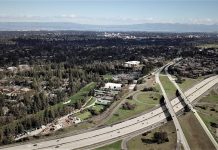[ad_1]
Like most industries, commercial real estate underwent a radical transformation with the proliferation of computing technology at the turn of the 21st century. But even as connectivity increases, traditional methods of the past have reemerged as highly relevant in a new age of information technology. For CRE professionals, that means a heightened emphasis on hyperlocal expertise.
The Way Things Were
For years, a commercial real estate broker had no choice but to dedicate significant time and resources to the gathering of property information. Collecting data points like ownership history, zoning regulations, and owner contact information was a constant challenge — one that constrained brokers to both a very specific geographic region and area of industry expertise.
Today, such information is easy to acquire through data aggregation platforms like Reonomy. And with swaths of commercial real estate data so readily available, that hyperlocal, block-by-block strategy has fallen by the wayside, as brokers today leverage information to buy, sell, and manage varied properties on a national scale.
The accessibility of data, however, also serves as the great equalizer. While commercial real estate brokers now have unprecedented access to properties across the country, so do all of their competitors. For some brokers, this leveling of the playing field signals a return to the days of hyper-specialized CRE.
“When I started 32 years ago, you had to become an expert on two city blocks and know everything about them,” says Lee & Associates’ Allen Buchanan. “I believe we’ve returned to that. Today, everyone has the same information, and it’s not enough to compete using only that data. Instead, we compete based on the depth of knowledge we cultivate within a specific set of that information.”
It’s no longer enough to simply know everything about a property, whether it’s down the street or across the country. Instead, today’s commercial real estate brokers must stay competitive by developing an ultra-specific, hyperlocal focus — a focus that should include a deep understanding of local news, regulations, and behavior, as well as market-specific challenges and overarching industry trends.
Finding Your Niche
That narrowed focus doesn’t necessarily have to be geographic, Buchanan says. It could be on a specific industry, building type, price bracket, or square footage range. Once you’ve chosen and mastered your niche, you’ll find your expertise attracts a specific clientele.
“I’ve seen food processing specialists, they know every food building in Southern California. They know the folks that own and occupy them — who’s growing or shrinking, who’s acquiring whom,” says Buchanan. “That’s how you become the hyperlocal market expert. I believe that’s a trend we will see and a way to differentiate yourself among your competition.”
Pick a target, do the research, and stay focused. Utilize targeted data and tailor your marketing efforts accordingly. Whether you specialize in industrial space, office subleases, or retail investments, take full advantage of the information and resources available to you to become an expert that clients can rely on.
This article originally appeared on reonomy.com
[ad_2]



















